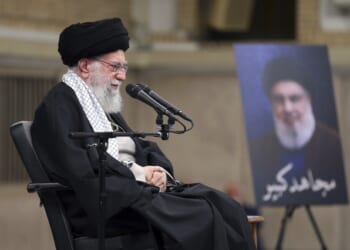Oliver Dean is a political commentator with Young Voices UK. He studies History and Politics at the London School of Economics and Political Science (LSE) where he is the President of the LSE Hayek Society.
In the annual sitting of the Liaison Committee, Keir Starmer recommitted to granting 16 and 17-year-olds the right to be able to vote in elections across the UK. Whilst some have heralded this as a monumental win for democracy, the reality could not be further from the truth. Simply put, it is gerrymandering masquerading as democracy. If the government is serious about getting young people more engaged in politics, their focus should be on the classroom – not the ballot box.
The decision to lower the voting age raises a number of serious concerns. Chief amongst them is teenagers’ lack of real world experience. From the time a child first enters school, to the time they leave at the age of sixteen, the vast majority of their time has been spent inside the same four walls.
Year after year, children are not exposed to the realities of the world; instead, they are coddled inside an environment that blunts their ability to think for themselves.
This is evident in employment statistics. Too often, supporters of extending the franchise flock to the argument that if 16 and 17-year-olds can work and pay tax, then they should be able to vote. However, the figures tell a different story. In 2023 alone, just 33 per cent of 16 – 17-year-olds were in some form of employment, compared to 58 per cent of 18 year olds.
This difference is critical. It is evident that 16 and 17 year olds are confined to the classroom, and are thus unable to gain the real world experience that is so crucial when casting a vote.
Coupled with this lack of real world experience is the problem of maturity, or rather the lack thereof. While many 16-year-olds are idealistic, intelligent and up to date with the current news cycle, these make up a minority of teenagers. Many critical elements of brain development peak at the age of 18, such as our ability to quickly process raw information.
To extend the franchise to those that lack this ability to reason would be harmful to our democracy. Voting, like drinking or smoking, is a civic responsibility that requires some level of life experience, emotional regulation and critical thinking that 16-year-olds simply do not possess.
The solution, therefore, is a strengthening of the education system. More must be done in the classroom to equip the next generation with the knowledge necessary to make an informed decision when they cast their vote. This means going further than a handful of scattered citizenship lessons, or a rushed PSHE module that currently plague our education system.
The curriculum must be reshaped to place greater emphasis on developing student’s understanding of the British political system. Understanding what each political party stands for, examining which candidates are standing in each student’s constituency and a broad understanding of local government would all be welcome changes to the curriculum.
Too often, students leave school ill-equipped in understanding how important politics is to everyday life. A change in the curriculum would ensure this injustice is prevented in the future.
Starmer has been blinded by a deadly combination of supposed democratic righteousness and electoral success. If the voting age is lowered, close to 1.5 million more people will be eligible to vote in UK elections – many of whom will be inclined to vote Labour. But the prime minister must detach himself from the fairytale he has constructed around himself and see the situation for what it is.
Giving 16 and 17-year-olds the right to vote will mean giving the vote to those whose lives have been defined by the walls of a classroom, and who lack the maturity to cast their vote in an informed fashion.
The government must look to strengthen political education in schools instead, arming young people with political knowledge inside the classroom ensures that they are made aware of the issues facing our country. The decision is clear; unfortunately, the Prime Minister seems desperate to garner instead as much electoral support as he can muster.


![Pentagon Begins Booting Trans Troops After Supreme Court Greenlights Ban [WATCH]](https://www.right2024.com/wp-content/uploads/2025/05/Pentagon-Begins-Booting-Trans-Troops-After-Supreme-Court-Greenlights-Ban-350x250.jpg)
![Trump Posts Hilarious Pope Meme, Leftists Immediately Melt Down [WATCH]](https://www.right2024.com/wp-content/uploads/2025/05/Trump-Posts-Hilarious-Pope-Meme-Leftists-Immediately-Melt-Down-WATCH-350x250.jpg)













